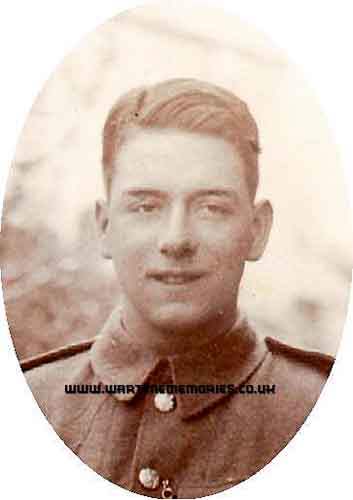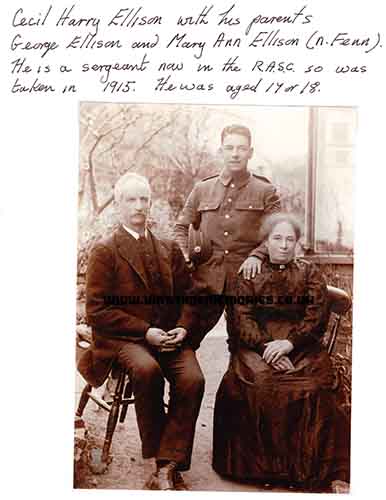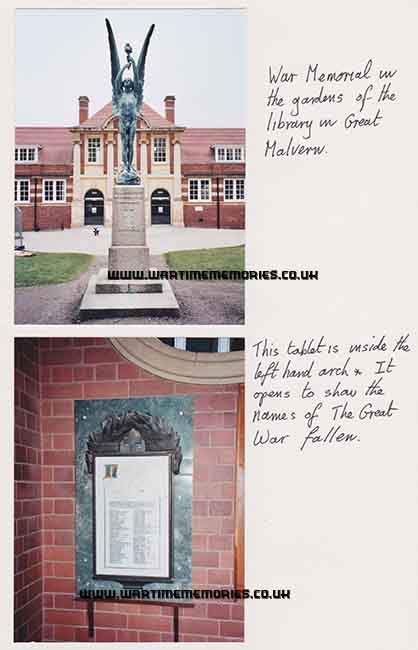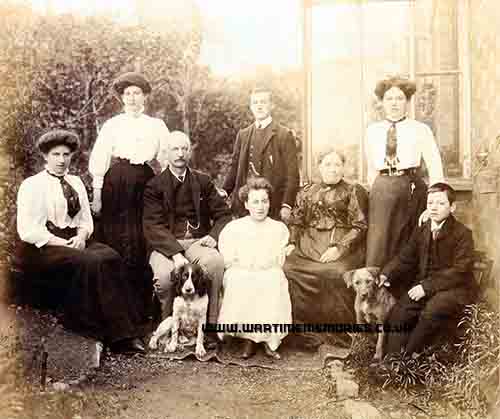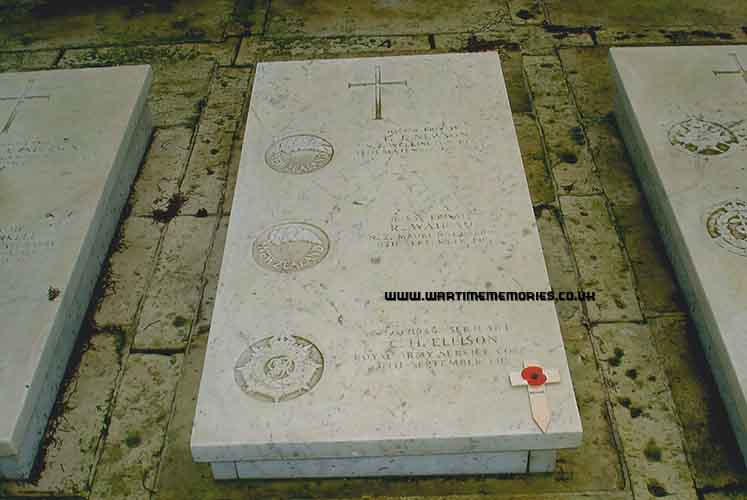Additions will be checked before being published on the website and where possible will be forwarded to the person who submitted the original entries. Your contact details will not be forwarded, but they can send a reply via this messaging system.
please scroll down to send a message
Sgt. Cecil Harry Ellison
British Army 13th Divisional Supply Column, HQ 39th Inf. Brig. Royal Army Service Corps
from:Malvern
(d.11th Sep 1915)
My great uncle Cecil Harry Ellison enlisted in the 9th Worcesters as Pte. 13918 and was then a Sgt S4/071946 in the RASC and fought in Gallipoli, I have his letters written from there. He was evacuated to Malta with enteric fever and died there. I have two letters written by ‘Tubby’ Clayton to my grandmother,(his Sister). He is commemorated on Malvern memorial and St James’.
Sgt Cecil Ellison, was born at Malvern, the son of Mr G W Ellison, gamekeeper of Oakdale, West Malvern. He was a clerk at Messrs Lear and Son, Malvern when he enlisted in the first week of the war. He joined Kitchener's Army and was posted to the 9th Worcestershire Regiment; however in January 1915 due to his clerical skills he was transferred to the Army Service Corps as a sergeant and took up duties on the Brigade staff. He was subsequently appointed as Chief Clerk to the 39th Infantry Brigade, which went to the Dardanelles in May. He died of enteric fever at Malta on the 11th September 1915.
In 1915 Cecil was working for a solicitor, Messrs Lear & Son, in Malvern, he came home one day saying Lord Kitchener wanted a million men and he had enlisted. Auntie Joan said Maude and the family were very upset as he was under age and did not have to go (he was 16 or 17). The recruiting officers wanted educated young men for the RASC and Cecil was quickly promoted to Sergeant and worked in the brigade headquaters. It would seem he was wounded and then contracted enteric fever (cholera) which was rife on the battlefield in Gallipoli.
The Dardanelles is a 38-mile strait between the Agean and the Sea of Marmara (it used to be called The Hellespont). It was of great strategic importance as it provided a sea route to Russia. In 1915 the Allies attempted to make Turkey allow passage through. A Naval expedition in February failed. In April 1915, British, Australian and New Zealand troops landed on the Gallipoli peninsula and on the Asian mainland opposite. Turkish resistance was strong and after nine months the troops were withdrawn. 36,000 died and Winston Churchill as First Lord of the Admiralty was blamed for its failure. ANZAC day dates from The Gallipoli Landings and has been observed since 1916
Cecil's description of the peninsular in his letters matched that of other reports of the time. He was possibly at Cape Helles which is at the tip of the peninsular. Galipoli battlefields were hell for both sides the men suffering disease and poor medical care.
When Hamiliton was replaced with Monro, he and Kitchener advised evacuation. The fighting was always horrific and from 6th to 13th of August a renewed effort was made near Krithia but this also was disaster. Cecil's last letter dated 20th August says things are "deuced lively" a massive understatement I would have thought. He mentions the stench of dead Turks around our headquarters
I visited Cecil's grave at Pieta Military Cemetery on the 23rd of January 2006. It is very well maintained by the Commonwealth War Graves Commission and there are many graves from WW1 and earlier conflicts. His grave is one of three in the same plot and he shares a memorial grave stone with two New Zealanders who died at the same time. I placed a Cross of Remembrance on the tombstone and recited the Royal British Legion exhortation for all three of them. A special remembrance service is held in Pieta cemetery each year on ANZAC Day by members of the Royal British Legion in Malta and the Australian High Commissioner. They are not forgotten.
I consider it a privilege to have had the opportunity of visiting Cecil's grave and felt that I had got to know him through his thoughtful letters to his mother and sister.
